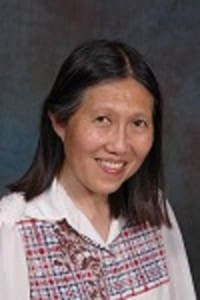 Tell us about yourself and how many books you have written.
Tell us about yourself and how many books you have written.
I immigrated from Hong Kong to the U.S. at the age of 15, old enough to remember the old culture and young enough to adapt to the new. I have a bachelor’s in English from UC Berkeley and master’s in International Affairs from Johns Hopkins. My three careers reflect my interests—journalism, international development, and creative writing.
I’ve written three books. Nightfall in Mogadishu is a spy thriller about the collapse of Somalia into a failed state. As a former aid worker there, I give an insider’s view of the clan politics that plague countries in the region. The same story is unfolding in neighboring Yemen and Libya today.
Journey across the Four Seas is a true story of my mother’s life. I taped her life stories while taking care of her and wove them into a memoir. It’s about her struggle to get an education for herself and later for her children. She finally brought her five children to the U.S. so that they could all go to college. My siblings and I are living out the American dream because of her.
My third book is Confucius Says, a novel on caring for aging parents in a Chinese American family.
What is the name of your latest book and what inspired it?
My latest book is novel with a tongue-in-cheek title, Confucius Says. It’s based on my experience in caregiving for my parents. They were with me for the last ten years of their lives. I was so affected by the experience that I had to write about it, both for my own therapy and for sharing my lessons learned with others.
Confucius Says is a comic-drama about a Chinese American family’s struggle to follow the Confucian principle of filial piety. The daughter, Cary, was brought up to believe that children should shed blood for their parents. After much fumbling and a fair amount of bloodletting, she discovers what the ancient sage Confucius really said. To her surprise, Confucius says the first rule of filial piety is to avoid injuring ourselves. The second and third rules astonish her no less. Enlightened by his wisdom, she rediscovers filial piety as a universal formula for a functional, loving modern American family.
Do you have any unusual writing habits?
I like to write in my head while walking in the park. Nature surrounds me, my juices are going, my head is clear, and whatever block I faced while writing at my desk disappears.
What authors, or books have influenced you?
I love To Kill a Mockingbird by Harper Lee. I’m glad to hear that it started out as a memoir and was later turned into a novel. This reflects my own writing process. My writing always springs from real life experience, but staying too close to reality can be confining. It’s like wallowing in the mud–all I can see is mud. But when I step away onto higher ground, the view opens up and the truth of the matter jumps out at me.
I also learned much from Thomas Wolfe, an author who used autobiographical material in a brazen way. His Look Homeward, Angel was a “novel,” but the people of his hometown recognized themselves and threatened to kill him.
These authors confirm that real life is more fantastic than fiction. A writer doesn’t really have to invent much to heighten the drama. Real life is sensational enough. However, learning from Wolfe, I’d be more careful about disguising my characters.
What are you working on now?
I have only a hazy notion in my head—something on the magic of music. It may be a mystery, romance, or memoir about my piano lessons. I hated them when I was child and quit at the first excuse. But as a grownup, I practice the piano so much that my husband has to tear me away at night. I’ve discovered the magical power of music to heal and enrich.
What is your best method or website when it comes to promoting your books?
The Amazon Kindle Facebook page has more than 3 million subscribers. It’s a great place to advertise my book.
I also advertise to various interest groups, depending on the subject of my book. Journey across the Four Seas, for example, appeals to women’s groups. Confucius Says appeals to caregiving groups and cultural clubs.
Do you have any advice for new authors?
Get your book out there as much as possible—in local papers and newsletters, and talk to anyone willing to listen, regardless of whether you sell books or not. One thing always leads to another. Be sincere and show appreciation for those who take the time to listen to your message.
What is the best advice you have ever heard?
Follow your heart.
What are you reading now?
Nora Webster: A Novel by Colm Toibin
What’s next for you as a writer?
I just want to write, write and write. When I don’t write, I feel like an earthworm squirming around in dirt. When I write, I’m an earthworm who understands its reasons for squirming.
If you were going to be stranded on a desert island and allowed to take 3 or 4 books with you what books would you bring?
War and Peace by Leo Tolstoy (it will keep me occupied for a long time)
1001 Arabian Nights
365 Tao: Daily Meditations by Ming-Dao Deng
Poems of Robert Frost
Author Websites and Profiles
Veronica Li Website
Veronica Li Amazon Profile
Veronica Li’s Social Media Links
Facebook Profile
Twitter Account